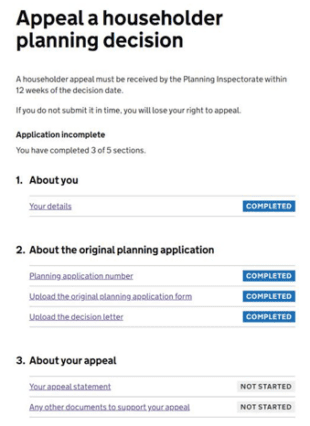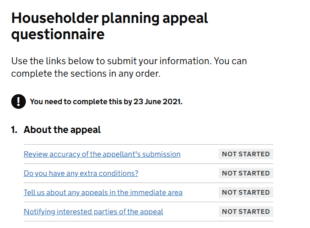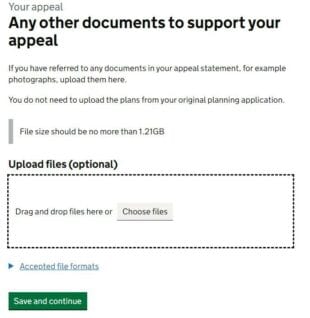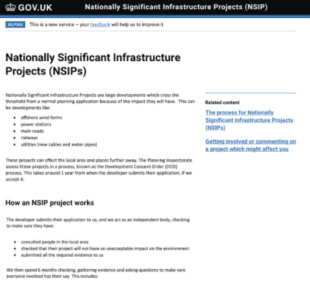
Stephen Read introduces the work to improve our 3 service areas and how it will make it easier for customers to do business with us.
Here at the Planning Inspectorate we group the services we provide into 3 areas:
- appeals
- applications
- examinations
Transforming our services is critical to our goals as an organisation, and my role at the Inspectorate is to lead the work in redesigning our services across the 3 areas.
The aims are to:
- make it easier for our customers to do business with us
- support our staff to work as efficiently and effectively as possible
- maximise the use of digital opportunities
- provide excellent value for money for taxpayers
Over the coming months you can expect to see blog posts from the teams as we talk about the fast pace of work going on to bring improvements to our customers.
In this post, I’m going to set the scene and explain what’s been happening across the 3 areas.
1. Appeals service

Our vision for the appeals service is ‘planning decision appeals made easier, faster and more cost effective’.
We deal with many different types of appeals at the Planning Inspectorate, with a range of complexity. To realise our vision, we needed to start with a narrow focus and gradually expand outwards to other types of appeals.
Our current focus is on transforming the householder appeals service which allows householders to appeal if their planning application is refused by their local council. From a digital perspective, it’s a live service that was built around a decade ago and has become out of step with modern service design and ways of working.
A lot of work has already taken place and we are now at the Beta stage. We are working with Bradford and Hillingdon local planning authorities (LPAs) and testing the service with appellants (parties who submit an appeal) in their area.
We have recently completed our assessment against the Government Service Standard and have been confirmed as meeting the standard. This is a key part in our development as it means we are building a great service. It also means that we can expand the number of appeals into the new service, which enables us to increase our learning.
The feedback has been really useful and has already led to changes we can implement now and ideas for future developments. This includes things like revising the planning decision notice for householder planning applications to make it clearer about the options for an applicant, and changes that avoid LPAs having to send copies of their policies to us for each appeal.
Gathering user research and feedback from all those involved in the appeals process is at the heart of developing the service – we have inspectors, case officers, validators and our customer service team involved from within the Planning Inspectorate, but we are also ensuring that appellants, agents and interested parties are involved in the research and testing.
What have we been working on?
Our next major release will include:
- questionnaire functionality that makes sure LPAs submit the appropriate information

Screenshot of the first part of the LPA questionnaire - improved ability for LPAs to upload multiple files

Screenshot of multiple file upload function - notifications to the relevant LPA when an appeal is submitted to the Inspectorate
For appellants, we are building in the elements needed that will allow them to see the progress of their appeal through the process.
What’s next?
We want to increase the number of appeals through the new service and are talking to additional LPAs about potentially becoming part of the beta. This will provide additional insight into how LPAs may process appeals differently.
2. Applications service

We also provide applications services, with nationally significant infrastructure projects being the most common. These projects include road, railway, power station and airport projects that meet or exceed the criteria set out in the Planning Act 2008.
Our vision for the service is 'a clear, easy to understand process, providing the right information to the right people, at the right time'.
In a similar vein to the appeals service improvements, we want to ensure that we have an inclusive service which:
- allows applicants and other service users to navigate the process easily and efficiently
- enables members of the public to get involved and provides transparency in the process
- assists service users to draw on previous learnings
We are currently in the Alpha stage with our service assessment planned for mid-July and our plan is to have our first application in Beta phase by late autumn.
3. Examinations service
Most of the examinations service work is where our independent Inspectors examine LPAs’ local plans.
Our work on the examinations service is planned to start later in 2021. This will allow us to link to the current local plans pathfinder that is being led by the Ministry for Housing, Communities & Local Government. In addition, our work on the appeals and applications services above will create elements that we can re-use to reduce the development needed in this area.
Keep tuned for more about our service improvements
We will be blogging more about our service improvements over the coming months. Subscribe to keep updated about all of our blog posts.
4 comments
Comment by James Johnson posted on
Great post! Have you looked at the service beyond the appeal (further upstream) and researched how appeals might be avoided in the first place, perhaps by clearer/faster communication from LPAs to applicants? I have a theory that many calls, appeals and complaints could be totally avoided if a Content Designer got their hands on all the letters for a few weeks.
Comment by Stephen Read posted on
Hi James
Thanks for your feedback. Our focus is on improving the service for appeals, applications and examinations and the planning decision notice is an example of something that isn't in the elements of the service that we control. However, we are working with our initial group of local authorities to test these changes with them.
With such a range of stakeholders involved in the wider planning system, we don't have a full picture of whether ideas such as yours have been trialled in specific local authorities at this time. Feel free to get in touch to discuss further - enquiries@planninginspectorate.gov.uk.
Comment by Hugh Craddock posted on
Hi Stephen. Good work in moving the Inspectorate forwards in digital terms. But Defra casework is stuck in the Dark Ages: there is still no ability for participants to upload files, for files to be shared, or for any document to be made available to the public unless it is expressly uploaded by gov.uk (meaning, in practice, orders and decisions only). What plans please?
Comment by Stephen Read posted on
Hugh - thanks for your comments. The functionality that you have mentioned is something that has been developed for our Appeals service and we are looking at reusing as much as possible for all of our different casework types including Defra casework. We plan to share more information as these elements progress.